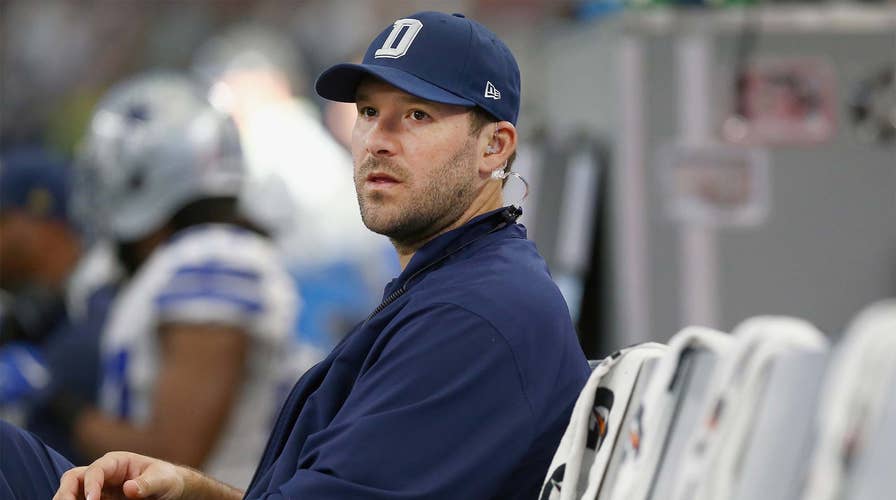Fox News Flash top headlines for September 9
Fox News Flash top headlines are here. Check out what's clicking on Foxnews.com.
First Take finally found itself a hot take after Keyshawn Johnson called out former Dallas Cowboys quarterback, Tony Romo, as a "diva."
Tackling the lack of double standard in treatment of quarterbacks in the NFL, compared to skill players, Johnson — a former 3x Pro Bowl receiver — went on a series of comparisons and threw Tony Romo’s name on the list of diva QBs that have gotten away with prima-donna behavior.
CLICK HERE FOR MORE SPORTS COVERAGE ON FOXNEWS.COM
"The moment that we look like we’re frustrated or we have a certain swag to us, we’re divas. But quarterbacks can ask for the highest money. They can decide whether or not — Brett Favre — if I want to play one day, don’t want to play another," said Johnson.
He then called out Romo with the following, "Tony Romo is one of the most diva-ish dudes that I’ve ever been around at [QB]. And he wasn’t even starting at the time."
Johnson also added: "If a receiver was to say that, we’d be crucified… I’m a living witness of it. I see what happens on a daily basis with these quarterbacks. The quarterback is always right because he’s the highest paid guy on the team. You can’t say anything bad to the quarterback. If you say something to him — if you scream at him or yell at him — you’re a problem. They always got to have the, ‘Look at his pretty face. His hairstyle. Oh, what about his suit!’ All diva stuff. Everything."
Also throwing in a nod to Aaron Rodgers’ newfound pursuit of the Jeopardy! hosting position, Johnson elaborated on the lack of trust allotted to receivers or running backs dubbed as "diva" players. For some players it has cost them a spotlight while others have lost out on massive contracts over eccentric behavior.
CLICK HERE TO GET THE FOX NEWS APP
Keyshawn played with Romo in 2004 as part of the Cowboys, before moving on to the Carolina Panthers to retire in 2006. While Johnson certainly received his share of criticism for diva behavior in the past, he believes some parity is needed with how the league perceives its players.
